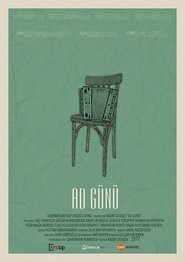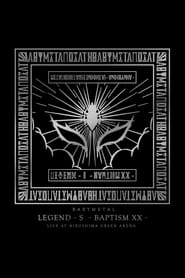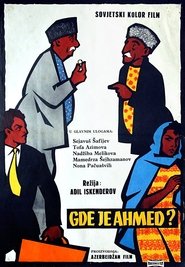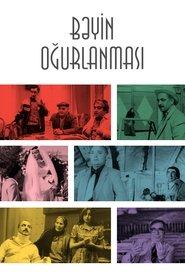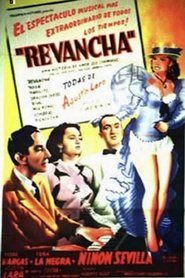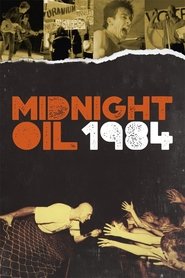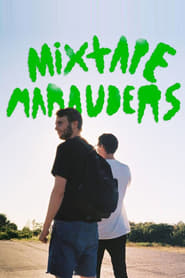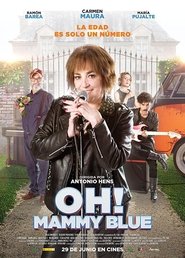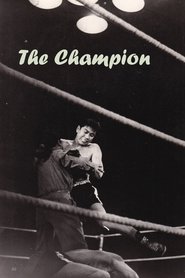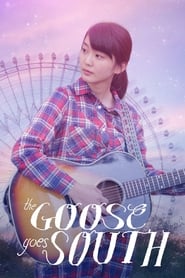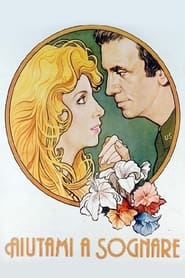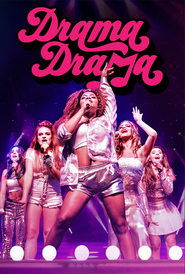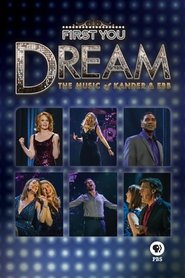Top Rated Music Movies - Page 322
-
Derbeder
1978
Derbeder
1978
star 9This is a tragic love story between the Agha's daughter İpek and the poor farmhand Ferdi. The two lovers, who grew up in the same village, separated when İpek moved to the city, but their love continued. Despite the kinship between Abbas Agha and Ferdi's father, the Agha's change of heart when he inherits money puts an end to the friendship. Despite his father's warnings about Ipek, Ferdi doesn't listen and moves to the city, thinking that Abbas Agha will help him. As Agha despises Ferdi, he endures every insult and hardship for his love. Realizing that he cannot be with İpek while he's poor, there is only one way left for the young man to realize his dreams: to go to Istanbul. -
The Birthday Party
1977
The Birthday Party
1977
star 3.9This lyrical psychological film is about true friendship. The characters in the film are contemporaries in of late 1970s Azerbaijan SSR with differing visions of the world, yet sharing true and lasting friendship. -
BABYMETAL - LEGEND - S - Baptism XX -
2017
star 10Legend - S - Baptism XX marked a pivotal moment in BABYMETAL's journey, celebrating SU-METAL's 20th birthday and her ascension to the role of sole lead vocalist following YUIMETAL's departure. This concert, held at Hiroshima Green Arena, was a testament to SU-METAL's growth and resilience, showcasing her powerful vocals and captivating stage presence. -
Ulduz
1964
-
Where is Ahmad?
1964
Where is Ahmad?
1964
star 5.5When his parents try to marry him to their neighbors' daughter, Ahmad runs away from home and his family try to find him. -
The Kidnapping of Groom
1985
star 5Being unable to shoot a film about Azerbaijani wedding customs, hopeless director decide to make a film about real wedding event. Though the stubborn father of bride resists approval the plan. -
Revancha
1948
Revancha
1948
star 5.5A man steals to buy medicine for his sick mother but when she dies he gets into drug trafficking at a local cabaret. -
Endless Night
2015
Endless Night
2015
star 5.8A young man idolizes a professional figure skater and dreams of following in his footsteps. -
Midnight Oil: 1984
2018
Midnight Oil: 1984
2018
star 7.2In 1984, Midnight Oil released their iconic record Red Sails in the Sunset. They embarked on a relentless tour around the nation performing raw and electrifying music that reignited the imagination of young Australians. That same year, their lead singer Peter Garrett committed to run for a Senate seat for the Nuclear Disarmament Party. With the mounting pressure of balancing the demands of music and politics this is the year that would make, but nearly break, Australia's most important rock and roll band. Thirty years in the making and featuring never seen before seen footage of the band on and off the stage, Midnight Oil: 1984 is the untold story of the year Australia’s most iconic rock band inspired the nation to believe in the power of music to change the world. -
Mixtape Marauders
2017
Mixtape Marauders
2017
star 3.5A nine song visual mixtape following two young stoners into a world of mindless day jobs, petty drug deals and obsessive mixtape curation. -
Last Love
2017
Last Love
2017
star 6The plot begins with them and ends with humanity. This author wanted to show continuity: the first love and the supposed last is an indivisible whole of one eternal Love. -
Oh! Mammy Blue
2018
-
The Champion
1957
The Champion
1957
star 6Eikichi Yamashiro, who is a former contender for the boxing title, works as a manager at a Club Champion owned by his fiancé Natsuko’s father. He lost a title match five years ago as he was besotted by Natsuko, but Eikichi actually cannot give up the dream of the championship. One day, he meets Shuntaro Fuma, who is a punk kid but a promising boxer, and realizes the dream that he himself could never fulfill. Then, they together start to train with the aim of the title. Mari Shiraki is an up-and-coming ballerina under the patronage of Eikichi as well. Eikichi forbids Shuntaro and Mari to be romantically involved with someone during their training, however, they start to go on a date. -
The Goose Goes South
2018
The Goose Goes South
2018
star 7Woozoo visits Osaka to finish his business as his boss Dae-jung has gone missing in a ship accident. On the last day, Woozoo chases someone looking exactly like Dae-jung. He ends up losing him, but the guitar sound draws him to a small bar, Pier 34. Its owner, Snow, somehow reminds him of Dae-jung and listening to his music brings back memories. After passing out right there, Woozoo misses his flight back to Korea and then quits his job on a whim. He soon meets Haruna who learns guitar from Snow. And he decides to stay at Pier 34 till he finds Dae-jung. -
Sade: A Love Affair With Life - Live in Montreux
1984
star 7.5Sade, recorded live at the Montreux Jazz Festival, in Montreux, Switzerland during 1984. Track list: Why can't we live together?; Your love is king; Hand on to your love; Sally; When I go to make a living; I will be your friend; Cherry pie; Frankie's first affair; Smooth operator; Snakebite; Love affair with life. -
Help Me Dream
1981
Help Me Dream
1981
star 7.5In 1943, during the war, Francesca, widowed, moves with her three daughters to her country house, to get away from the bombing of Bologna. In the villa she finds her childhood friends and her old love Guido, who has not forgotten her. Francesca has a passion for everything that comes from America, like music and cinema. She even tells her daughters that her husband who died in the war would actually leave for the USA, where he would live. -
Performance Anxiety
2008
Performance Anxiety
2008
star 3.5Jeff and Peter live together, but their characters are worlds apart. Jeff is a messy, hippy musician, while Peter is a tidy, almost obsessive, office worker. As a couple, they struggle for connection. While Peter finds pleasure in the steamy solitude of the shower, Jeff explores his sensual delights in an imaginary world of exotic dreams. -
Drama Drama
2019
Drama Drama
2019
star 5.4Five vastly different high school girls are assigned to lead an anti-bullying assembly, and in doing so, accidentally form a girl group that they call Drama Drama. The assembly is a hit, and a classmate convinces them to form a real band. As they write songs together, play at the homecoming dance, and prepare for a concert outside school, the band must navigate their own teenage drama: boys they like, jealous 'frenemies', the stress of passing their final year, and deciding their futures. -
First You Dream: The Music of Kander & Ebb
2015
star 9.5An all-star cast performs the music of John Kander and Fred Ebb; songs include "New York, New York" and "Cabaret."
 Netflix
Netflix
 Amazon Prime Video
Amazon Prime Video
 Apple iTunes
Apple iTunes
 Apple TV Plus
Apple TV Plus
 Disney Plus
Disney Plus
 Google Play Movies
Google Play Movies
 Paramount Plus
Paramount Plus
 Hulu
Hulu
 HBO Max
HBO Max
 YouTube
YouTube
 fuboTV
fuboTV
 Peacock
Peacock
 Peacock Premium
Peacock Premium
 Amazon Video
Amazon Video
 The Roku Channel
The Roku Channel
 AMC+
AMC+
 Kocowa
Kocowa
 Hoopla
Hoopla
 The CW
The CW
 Vudu
Vudu
 Starz
Starz
 Showtime
Showtime
 PBS
PBS
 Pantaflix
Pantaflix
 FXNow
FXNow
 Tubi TV
Tubi TV
 Kanopy
Kanopy
 Comedy Central
Comedy Central
 Crunchyroll
Crunchyroll
 Microsoft Store
Microsoft Store
 Redbox
Redbox
 Sun Nxt
Sun Nxt
 ABC
ABC
 DIRECTV
DIRECTV
 Crackle
Crackle
 Fandor
Fandor
 Plex
Plex

